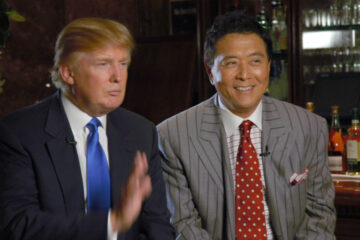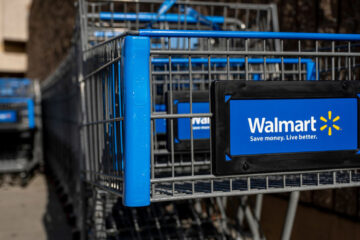President Donald Trump’s trade war may have surprised Wall Street, but pub, bar, and club owners worldwide saw it coming.
Markets hate volatility, and the near-universal tariffs that took effect on April 2 have poured a heaping helping onto everyone’s laps.
The CBOE Volatility Index, also known as the VIX, reached its highest reading since the 2008 financial crisis.
💵💰Don’t miss the move: Subscribe to TheStreet’s free daily newsletter 💰💵
Meanwhile, the stock market has lost at least 1,000 points four times since Liberation Day. Before April 2, the Dow had experienced such declines only seven other times in its 130-year history.
Last week, the 10-year yield for U.S. government bonds jumped from 3.9% to 4.5%, and the 30-year yield jumped almost 5%. A movement of 0.5% is considered a big deal.
Related: China may have made its first big mistake in U.S. trade war
However, the wild swings seem a little overblown, especially since Trump has telegraphed his plans to start this trade war for months. It was famously a topic of discussion during the run-up to last year’s election, when rivals from both sides of the aisle warned America that Trump’s tariffs would cause some pain.
But Wall Street missed this discussion and stark cleavage point between the two candidates. Banking scions like Jamie Dimon endorsed Trump’s economic plan over Kamala Harris.
It may work out for Dimon and Wall Street in the future, but for now, they are feeling the pain.
One industry in particular did pay attention, and they stocked up on one U.S. export in record numbers.
Alcohol exporters benefit from Trump tariffs
U.S.-made spirits saw a record high in exports in 2024, hitting $2.4 billion, according to the Distilled Spirits Council of the U.S., representing a 10% year-over-year increase.
The rise in business was driven by a 39% increase in exports to the European Union, which had no tariffs on spirit imports last year. The EU apparently was concerned that the whiskey tariffs President Joe Biden suspended in 2022 would return under President Trump.
”U.S. spirits exports hit a new high in 2024, recapturing lost market share since the UK and EU lifted retaliatory tariffs that were applied between 2018 and 2021 in connection with two trade disputes,” said DISCUS President and CEO Chris Swonger.
“Unfortunately, ongoing trade disputes unrelated to our sector have caused uncertainty, keeping many U.S. distillers on the sidelines and curtailing sales growth.”
The EU and UK imposed retaliatory tariffs on U.S. spirits and whiskey imports the first time around, leading to global export declines of 12% and 18%, respectively, between 2018 and 2021.
American whiskey exports to the EU, the world’s largest import market, dropped 20% from $552 million to $439 million. Since tariffs were suspended in 2022, however, American whiskey exports have jumped 60%, peaking at $699 million in 2024.
”The EU’s recent decision not to reimpose a retaliatory tariff on American whiskeys and other U.S. spirits is a positive first step toward getting the U.S.-EU spirits sectors back to zero-for-zero tariffs and untangling spirits from these trade disputes,” Swonger said.
Related: Apple’s tech tariff exemption had one shocking supporter
Trump tariff situation is still very fluid
Earlier this month, the Trump administration was forced to admit that its 145% tariffs against China may have gone a bit too far, so it exempted electronics like laptops and smartphones from the duties.
After meeting with industry lobbyists over the past few weeks, President Trump is planning to exempt car parts from the 145% tariffs the U.S. currently has on China, the Financial Times reported.
The exemption would keep the 25% tariffs on all foreign-made cars and the separate 25% tariff on car parts that go into effect on May 3, however.
Despite electronics and auto parts being a sharp pain point for China, Trump has softened his position after heavy lobbying from both industries.
Trump’s inauguration fund raised a record $250 million, with more more than $150 million of that coming from companies, individuals, and trusts that paid out at least $1 million, according to Federal Election Commission data.
Related: Veteran fund manager unveils eye-popping S&P 500 forecast


